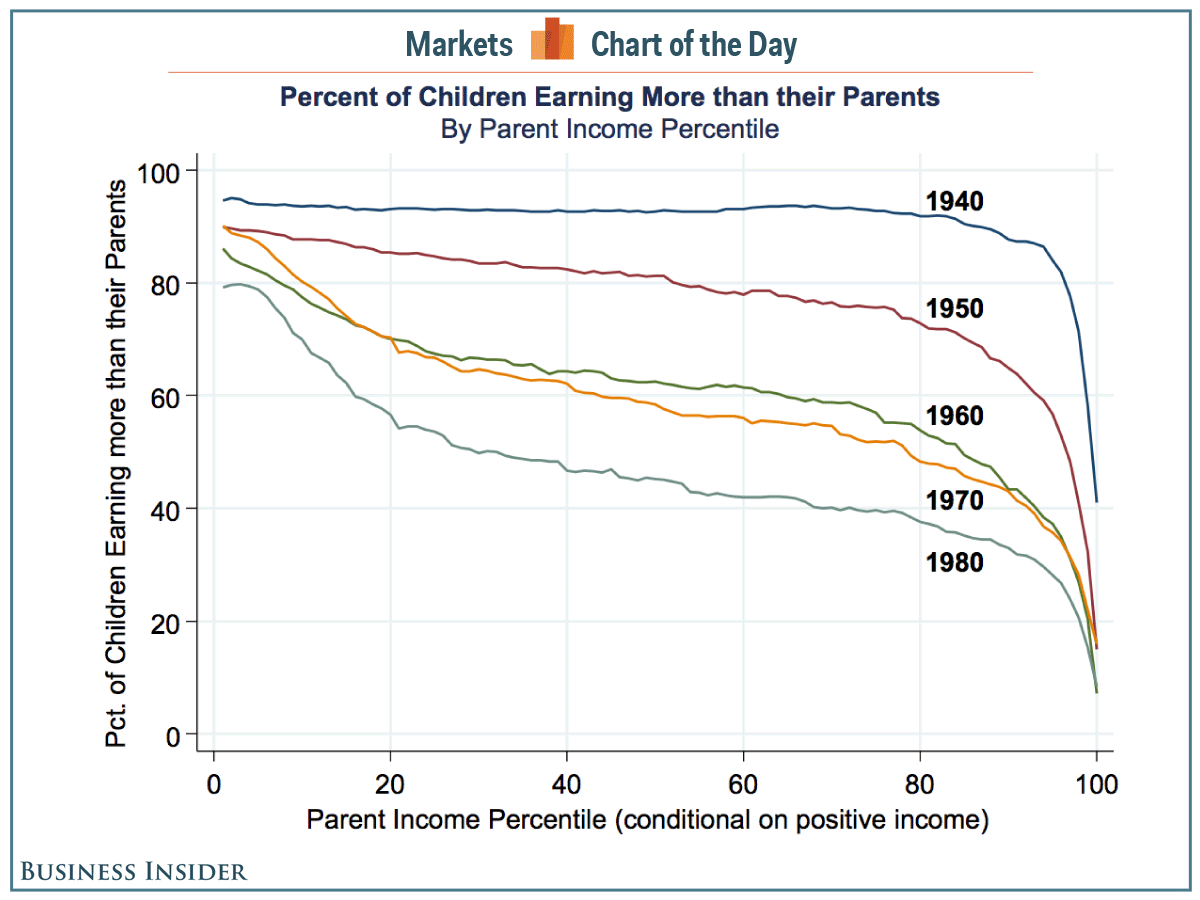One of the most important parts of the American Dream is the hope that your children will be better off than you are. Unfortunately, that is becoming less common.
The likelihood that children at age 30 had a higher inflation-adjusted income than their parents did when they were the same age has been dropping over the last several decades, according to a recent study by Stanford economist Raj Chetty and his team at the Equality of Opportunity Project cited by Jeff Gundlach in his presentation released earlier this month.
By combining data from the Census Bureau with anonymized tax record information, Chetty and his team were able to approximate the likelihood that children would earn more than their parents for different levels of parental income, and show how that likelihood changed over the decades.
As the chart shows, around 90% of children born in 1940 across the entire income distribution earned more than their parents did at age 30. That percentage dropped each decade, with only about 50% of children born in 1980 earning more than their parents.

